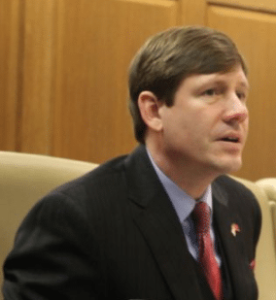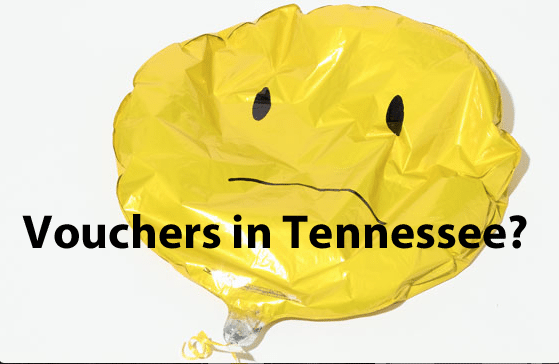By MARTA W. ALDRICH, LAURA FAITH KEBEDE
The push to allow some Tennesseans to use private-school vouchers has hit a roadblock that could stall voucher legislation for a fourth year.

Sen. Brian Kelsey said Monday that he won’t ask a Senate committee to take up his bill — which would pilot a program in Memphis — when the legislature reconvenes its two-year session in January.
“I listen to my community. Right now, there’s not enough parental support,” the Germantown Republican lawmaker told Chalkbeat after sharing the news with Shelby County’s legislative delegation.
Rep. Harry Brooks, who sponsors the proposal in the House, did not immediately return phone calls about whether he will seek a new Senate sponsor. Kelsey would not comment if he would support the legislation if another state senator picked up the mantle.
This year, the proposal reached as far as the Senate finance committee and a House finance subcommittee before Brooks asked to delay a vote until 2018. At the time, he cited the need to work out details about private school accountability, specifically for high school students.
Kelsey said Monday he would not withdraw the bill or his sponsorship, but also doesn’t plan to bring the measure to a vote in the finance committee, which would halt the proposal in its tracks unless a new sponsor comes aboard.
This week’s development signals that the momentum for vouchers may be shifting for now.
Nationally, recent studies show that achievement dropped, at least initially, for students using vouchers in Louisiana, Indiana, Ohio and Washington, D.C. And in Tennessee, one group that has lobbied annually for vouchers is taking a step back from the issue, according to its executive director.

“I can tell you that Campaign for School Equity will not be pursuing or supporting any voucher legislation this year. It’s a shift in focus for us …,” Mendell Grinter said, adding that the Memphis-based advocacy group is switching emphasis to student discipline and other issues of more concern to its supporters.
Vouchers have passed three times in Tennessee’s Senate, only to stall each time in the House. Proponents had thought that limiting vouchers to Memphis would garner the legislative support needed this year, but the Kelsey-Brooks bill didn’t sit well in the city that would be most impacted. Opposition swelled among county commissioners, local legislators, and numerous school boards across Greater Memphis.
During discussions Monday with Shelby County lawmakers, Bartlett Superintendent David Stephens said vouchers would be a blow to districts already unsteady from years of reform efforts.
“Any time we take dollars out of public schools, we’re hurting public schools,” Stephens told Chalkbeat later. “We don’t need to do anything to hurt or cut funding there. When we talk in Shelby County about school choice, we have the municipal districts, charter schools, the county school system. That’s choice.”

Rep. Antonio Parkinson, a Memphis Democrat, said opposition from the Bartlett district appeared to carry more weight with Kelsey than did Shelby County Schools, which has publically been on the record against the legislation from the start.
“Challenges (that Stephens) talked about were challenges we’ve been screaming about from SCS’ standpoint for years,” Parkinson said.
Rep. Bill Dunn, a Knoxville Republican who has championed vouchers for years, said he’ll be disappointed if a bill doesn’t come up for a vote in 2018. “The whole reason for vouchers is to give a chance to these kids who are doomed unless they get in a different educational environment,” he said.
Tennessee’s legislature reconvenes on Jan. 9.
Chalkbeat reporter Caroline Bauman contributed to this report.




